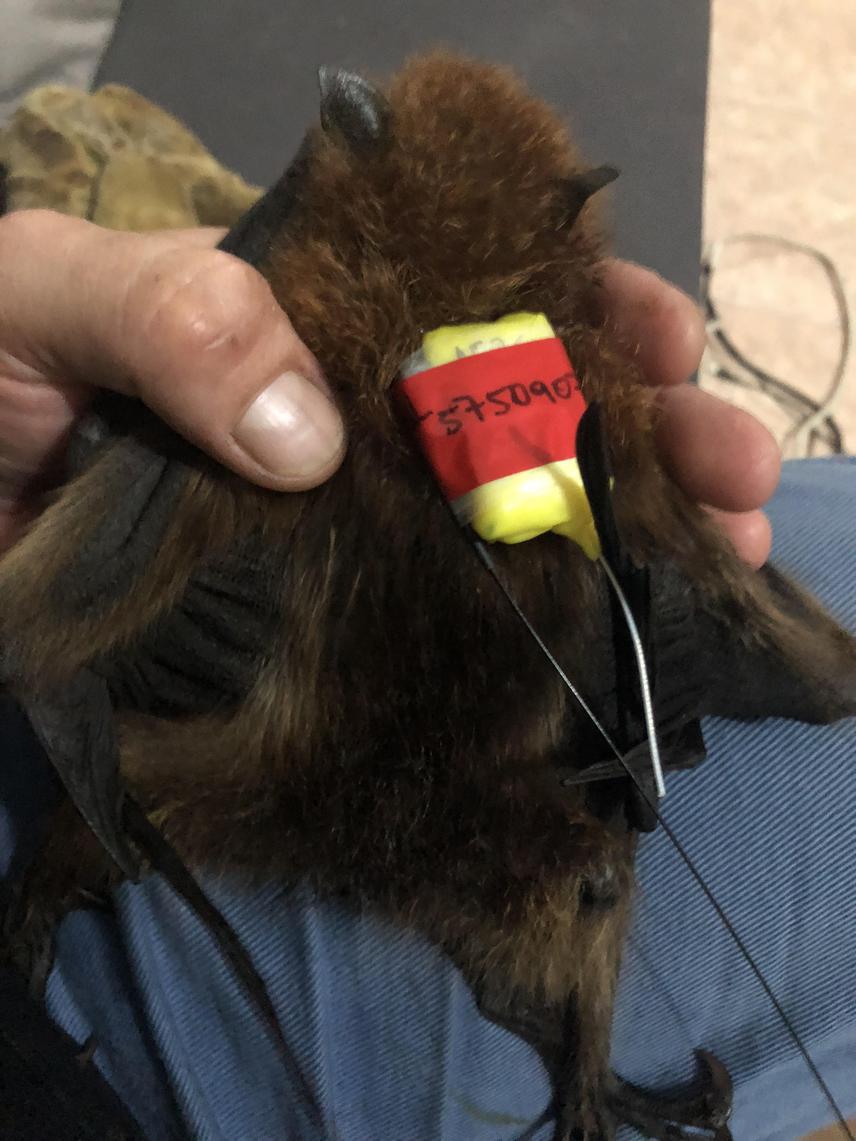Ryszard Oleksy
Other projects
25 Jul 2012
The Contribution of Fruit Bats to Forest Regeneration in Madagascar – Do Bat-Processed Seeds Do Better?
19 Sep 2013
The Impact of the Endangered Mauritius Fruit Bat (Pteropus niger) on Commercial Fruit Farms
2 Dec 2015
The Impact of the Mauritius Fruit Bat (Pteropus niger) on Commercial Fruit Farms and Possible Mitigation Methods
The aim of the project is to investigate the effectiveness of the Madagascar flying fox in the dispersal and germination of seeds.

CGPS tag attached to a pup prior to release.
Fruit bats (Family Pteropodidae, Order Chiroptera), feed almost exclusively on plant material. Through their high mobility and rapid digestion they appear to be of fundamental importance in the maintenance and regeneration of tropical forests, and at least 300 plant species are known to be dispersed by Old World fruit bats. Although several studies have investigated the germination of seeds that have passed through bats’ digestive systems, there is little information on the fate of the resulting seedlings.
The study aims to investigate the effectiveness of Madagascar’s largest fruit bat (Pteropus rufus, categorised as ‘Vulnerable’ by IUCN) in the dispersal of seeds, and their germination and recruitment, thus clarifying the bat’s role in the regeneration of highly fragmented forest there. This is the first study to test the effects of seed ingestion by bats on germination success outside laboratory conditions, in progressively more natural environments. It includes previously overlooked factors such as predation and the role of light on germination, and will quantify seedling establishment and future success. Additionally, the project will investigate seed load distributions to see how effective bats are in seed dispersal. Also, to enhance regeneration of forest, artificial feeding sites will be constructed in open areas where fruits are scare, in order to attract bats to places they are not likely to visit. By defecating during flight, bats will add to the soil seed bank. This part aims to involve local communities in monitoring bat activity and thus increase their awareness of the important roles that bats are likely to play in Madagascar. Such an activity may improve future protection of the species.
The proposed study will help to understand fruit bats’ roles in the restoration and regeneration of forests in Madagascar, not only by long distance dispersal but also by potentially enhancing seed germination through ingestion. The feeding behaviour of these bats seems to improve the ability of seeds to germinate and occupy previously cleared areas of forest. Therefore, it is essential to know how effective bats are in promoting the establishment of new seedlings. Creating artificial feeding sites in degraded forest areas which are otherwise unattractive to potential frugivores and thus have a poor soil seed bank may be a potential and effective tool for identifying areas in which to plant fruiting trees that are particularly attractive to bats and ultimately aid forest regeneration.
Results of this study will provide valuable information on bat behaviour as an essential tool for the maintenance of vulnerable forest ecosystems in Madagascar and its biological diversity.